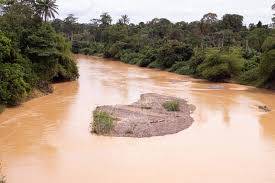Ghana's Galamsey Crisis: A Struggle for Balance
Ghana, known for its rich natural resources and vibrant culture, is facing a severe crisis due to illegal mining, commonly referred to as "galamsey." This term, derived from the English phrase "gather and sell," encapsulates the informal mining operations that have proliferated across the country, particularly in gold-rich regions. While these activities provide livelihood opportunities for many, they pose significant environmental and social challenges, threatening the very fabric of Ghanaian society.
The Rise of Galamsey
Galamsey has become a prominent issue in Ghana over the past two decades, driven by high gold prices and economic pressures. As legal mining becomes increasingly regulated, many locals turn to illegal mining as a means of survival. Estimates suggest that hundreds of thousands of people engage in galamsey, drawn by the promise of quick financial returns. This surge in informal mining operations has led to widespread deforestation, water pollution, and land degradation, raising alarms among environmentalists and government officials alike.
Environmental Impact
The environmental consequences of galamsey are dire. Miners often use toxic chemicals, such as mercury and cyanide, to extract gold from ore. These substances contaminate local water sources, affecting not only the ecosystem but also the health of nearby communities. Rivers that once supported biodiversity and provided drinking water are now laden with pollutants, leading to increased health issues among residents.
Moreover, the unregulated nature of galamsey leads to rampant deforestation as miners clear vast areas of land. The loss of trees not only exacerbates climate change but also disrupts local wildlife habitats. As the environment deteriorates, so too does the agricultural potential of the land, threatening food security for many families.
Socio-Economic Implications
While galamsey provides economic opportunities, it also perpetuates a cycle of poverty and conflict. Communities often become polarized over mining rights, leading to disputes that can escalate into violence. Additionally, the income generated from illegal mining rarely translates into long-term economic development. Instead, it fosters a reliance on an unstable and unsustainable industry, leaving many in perpetual economic uncertainty.
The government's response has been to crack down on illegal mining through various initiatives, including the deployment of military forces to mining areas and the suspension of licenses for legal miners. However, these efforts have often met with resistance from local communities who see galamsey as a vital source of income. The challenge lies in balancing the need for regulation with the economic realities faced by those who depend on mining for their livelihoods.
The Path Forward
Addressing the galamsey crisis requires a multifaceted approach. First, the government must enhance regulatory frameworks to better monitor and control mining activities. Implementing sustainable mining practices can help mitigate environmental impacts while allowing for economic benefits. Additionally, providing alternative livelihood opportunities in agriculture or other sectors can reduce dependence on illegal mining.
Community engagement is also crucial. Local populations must be involved in decision-making processes regarding resource management and development projects. By empowering communities, the government can foster a sense of ownership and responsibility towards their environment.
In conclusion, Ghana’s galamsey crisis is a complex issue that underscores the need for careful consideration of environmental sustainability and economic development. By finding a balanced approach, Ghana can work towards a future where both its people and its natural resources can thrive.



